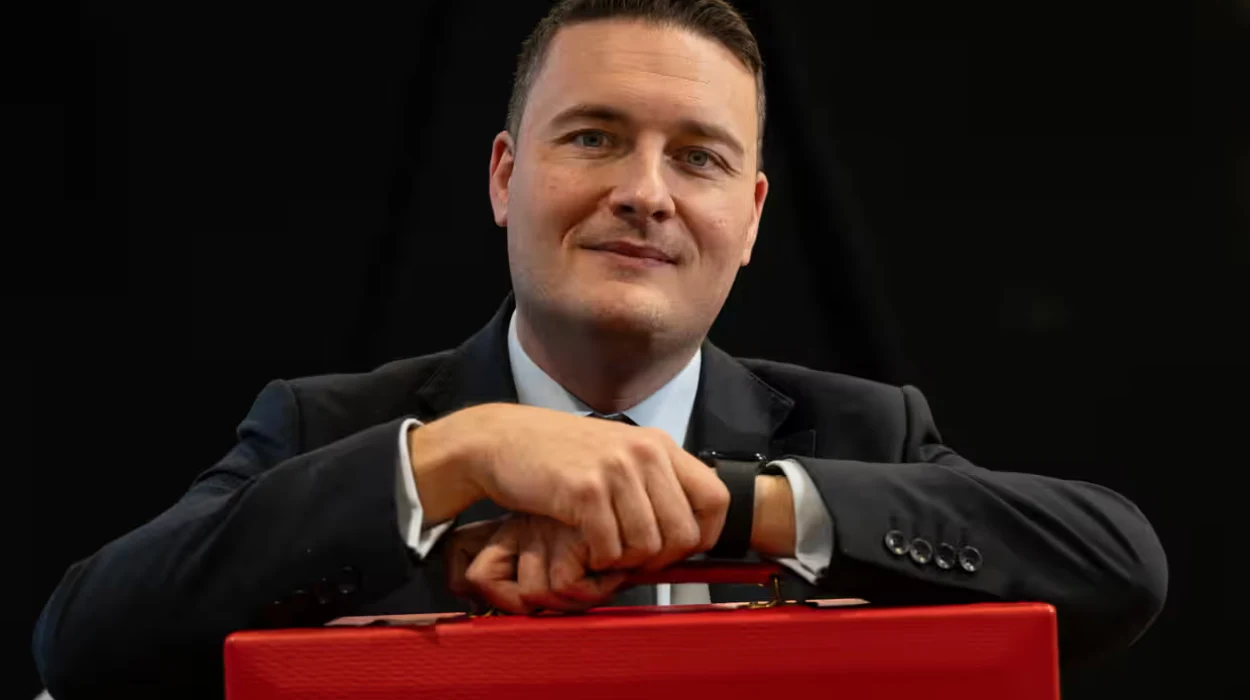UK (Parliament Politics Magazine) – Health Secretary Wes Streeting supports private healthcare in cutting NHS waiting times but insists it must provide genuine additional capacity.
The health secretary, who has criticised “middle-class lefties” for prioritising ideology over patient care, stated he would take a pragmatic approach to using the private sector resources.
Earlier this week, the government revealed plans that private hospitals will offer NHS patients in England up to one million additional appointments, scans, and operations each year to address the backlog.
What did Streeting say about the two-tier system?
The Health Secretary stated,
“The Tories opened up in this country a two-tier system where those who could afford it would be paying to go private, being seen faster, and those who couldn’t were being left behind.”
He added,
“It is a point of principle to me that we end that two-tier system. Where there is spare capacity in the independent sector we will use it. We have agreed that we will work with them, and they will work with us to cut NHS waiting times.”
Mr. Streeting stressed that the private providers need to ensure they are offering real capacity to the system.
He made it clear that he is taking a practical stance, stating that the independent healthcare sector could play an essential role in tackling the NHS’s current challenges.
Centre for Health rejects Streeting’s private sector claims
The Centre for Health and the Public Interest, which monitors NHS privatisation, rejected the Health Secretary’s comments regarding the private sector’s role in providing extra capacity, calling them “utter nonsense” and arguing that NHS staff are the ones actually performing the operations.
The think tank said,
“Put simply, private hospitals are unable to deliver any operations without using NHS consultant surgeons or anaesthetists. Letting NHS consultants do the easy work in the private sector starves the NHS of both staff and income.”
Streeting focuses on tech and health reform for NHS
Wes Streeting, whose department was allocated an additional £22bn in the budget, revealed his intention to focus heavily on technology during the spending review to enhance NHS productivity.
He added, “NHS staff say we love what you’re saying about AI, genomics, machine learning, but we would be grateful if we could just turn on a machine and it works in the morning.”
Under the government’s 10-year NHS plan, Mr Streeting aims to prioritise prevention over treatment to shorten the time people experience chronic health conditions.
The Health Secretary said he remains committed to pushing the food industry toward promoting healthier options to tackle the obesity crisis, with a proposal involving working with the sector and government departments expected later this year.
NHS winter crisis grows due to flu
Flu cases are increasing, and the NHS is facing more pressure this winter, with record delays in ambulance handovers at A&E.
Due to the strain from the cold weather, the NHS is managing patients in chairs for extended hours, while a hospital gym has been converted into an additional ward space.
Last week, England saw an average of 5,408 flu cases per day, a 21% increase from the previous week’s 4,469 and the second-highest since the COVID-19 pandemic. Mr Streeting described it as a “tidal wave of flu,” which led to an increase in intensive care patients from 211 to 256.
The latest figures from NHS England, released on Thursday, revealed that 19,554 patients were stuck in ambulances for more than an hour before being transferred to A&E due to hospital overcrowding. These delays now make up 21% of all handovers, a significant rise from 13% the previous week.
Doctors raise concerns over NHS chaos
Doctors have raised concerns about packed NHS hospitals, warning that patient safety is at threat. Dr Mashkur Khan of the Royal College of Physicians stated, “Our physiotherapy gym has now been taken over for extra bed spaces, and the corridors are full to the brim. Patients are often managed in chairs all day and all night.”
NHS England’s Prof Sir Stephen Powis said hospitals are under extreme pressure, and A&E staff feel overwhelmed compared to the peak of the pandemic.
NHS reforms announced by the government
The major elements of Keir Starmer’s NHS plan are the following:
- NHS plans to reduce the 7.5 million waiting list and restore the 18-week treatment target.
- Community Diagnostic Centres (CDCs) to expand with longer hours and more accessible testing.
- Surgical hubs to focus on common procedures, reducing waiting lists and easing seasonal pressures.
- 2 million extra appointments to be delivered in the first year, aiming for 65% of patients treated within 18 weeks.
- GPs to work with hospital doctors to reduce unnecessary referrals and streamline care.
- The NHS app will give patients more control over appointments, reducing wait times.
Wes Streeting stressed the importance of the government’s plan to reduce NHS waiting lists by increasing the use of private sector capacity. The plan focuses on providing 1 million extra appointments, scans, and surgeries annually.


